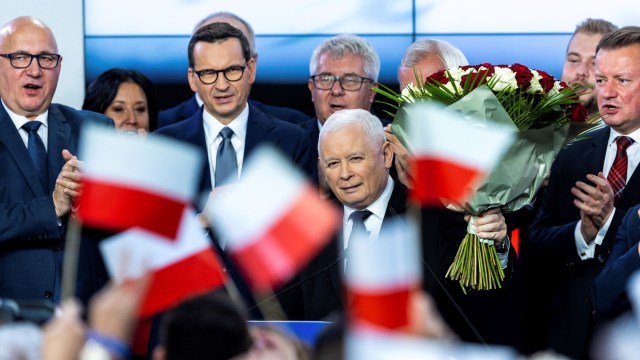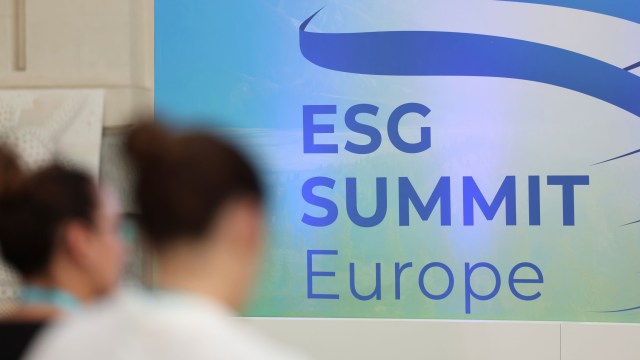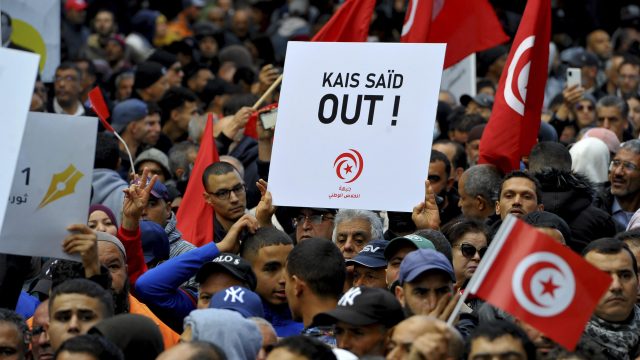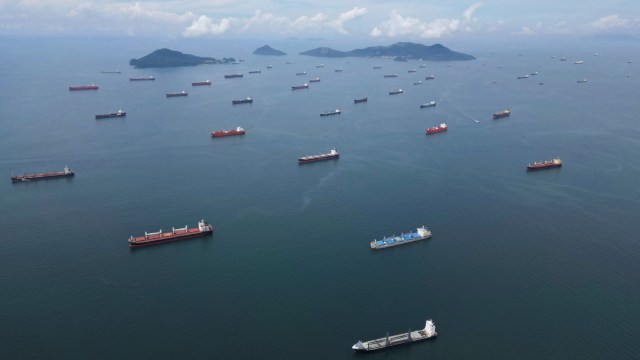Today at WPR, we’re covering the future of Poland’s long-ruling but recently defeated PiS party and the surge in demand for “green finance.”
But first, here’s our take on today’s top story.
Green transition: The Biden administration is looking to assuage concerns among its allies in Europe about last year’s Inflation Reduction Act, or IRA, which includes more than $300 billion in spending and tax credits aimed at bolstering the United States’ clean energy industry. In a speech in Germany yesterday, the U.S. deputy secretary of the treasury argued that the bill does not signal a turn toward U.S. protectionism. (New York Times)
Our Take: Until recently, the international response to the climate crisis was framed as an issue requiring diplomacy and cooperation—states working together to set targets for lowering emissions and agreeing to sacrifice some economic growth in order to meet them.
That trend ended when it became clear that newly developed green technology could itself be an engine for economic growth, prompting individual governments to shift their responses to the climate crisis toward domestic industrial policy. This serves two important and related electoral purposes, both of which help centrist governments counter the grievance-based politics of the far right:
- It reframes the green transition as less about job destruction, mainly in nonrenewable energy industries, and more about job creation in renewable energy and green technology industries.
- It includes a nationalist appeal. There’s a reason U.S. President Joe Biden has coopted the phrase “Made in America” to promote the IRA.
There’s a trade-off in this shift, though. On the one hand, domestic-focused climate policies like the IRA can give an immediate boost to green industries while gaining more popular approval among voters.
On the other, if governments prioritize their own industries, it can fuel tension, turning climate policy into an economic battle. That’s what has been playing out between the U.S. and EU, with the latter frustrated by the IRA’s incentives for domestic industries that EU officials argue would pull investment away from their economies. In response, the EU is now preparing its own subsidies.
Then there’s the issue of great power competition. While the Biden administration has advocated for greater climate diplomacy between the U.S. and China, it has also placed the green transition at the center of their economic competition. The IRA, for instance, includes provisions widely understood to be aimed at preventing Chinese clean energy and electric vehicle companies from profiting off of the policy.
Those tensions, between adversaries as well as allies, have turned the green energy transition from a game of cooperation into a game of competition. It’s long been a truism that the climate crisis respects no borders. But the response to it increasingly does.
More context from WPR:
- Peter S. Rashish on U.S.-EU tensions over the IRA.
- Andrew Gawthorpe on how U.S.-China competition is weaponizing the green transition.
- Mary Gallagher on the U.S.-China tech decoupling.
- Lyuba Zarsky on emerging U.S.-EU tensions over green finance.


Poland’s PiS Party Is Playing With Fire
When Poland’s long-ruling PiS party lost the country’s Oct. 15 elections, it triggered a ferocious debate within the party about whether to work with a new opposition-led government or do everything possible to sabotage it.
As columnist Alexander Clarkson writes, how this debate within the conservative, anti-immigrant PiS is resolved could influence how other right-wing parties in Europe respond to electoral defeat.
To Make ‘Green Finance’ Work, Start by Defining It Better
The surge in investor demand for “green finance” is good news for the environment, representing a potential reservoir of urgently needed funds to stabilize the climate. According to a U.N. report, $125 trillion of climate investment is needed to meet the “net zero by 2050” emissions goal set by the Paris Agreement. Some estimates put the number much higher.

Is “green finance” the answer? Possibly, writes Lyuba Zarsky. But not without substantial reform and regulation, starting with a clearer definition of what it is—and isn’t.

We want to hear your take on the issues we cover. We’ll select one person from those who answer the question below to receive a free one-month extension of their WPR subscription.
Global leaders and tech executives are in the U.K. today for the opening of an artificial intelligence summit, a top priority of PM Rishi Sunak, who wants to lay the groundwork for preventing AI from becoming a threat. The summit reflects the widespread debate about how alarmed we should be by the rapid development and popularization of AI.
This week’s question: How do you view the future of artificial intelligence?
For more context: Read yesterday’s Daily Review on AI.

Rached Ghannouchi, the leader of Tunisia’s moderate Islamist party and a vocal opponent of President Kais Saied, was sentenced to 15 months in prison for supporting terrorism and inciting hatred.
The verdict underscores Tunisia’s continued democratic erosion under Saied, who has increasingly put dissidents and opposition voices behind bars. As Francisco Serrano wrote last month, the government’s silencing of more and more critics comes in part because it lacks palatable solutions or a long-term plan for the country’s economic crisis.

Saied Is Sinking Tunisia’s Democracy—and Its Economy
Oct. 9, 2023 | Tunisia under President Kais Saied has been marked by democratic erosion and an economic crisis with no obvious solutions. Read more.
The authority administering the Panama Canal, through which 3 percent of world trade passes, said the number of ships allowed to transit the canal each day will be further slashed in the coming months, as Panama continues to experience a severe drought.
As Cristina Guevara wrote in September, Panama’s crisis underscores the linkages between the global economy and the vulnerability of critical infrastructure in the face of climate challenges.
Panama’s Drought Has Global Implications
Sept. 22, 2023 | A drought in Panama has reduced transits at the Panama Canal, with implications for all of international trade. Read more.

Yemen’s Houthi rebel group claimed responsibility for missile and drone attacks targeting Israel for the first time on Tuesday, AP reports. Shahryar Pasandideh wrote last month about the increased shorter-range strike capabilities of Iran, the Houthis’ main sponsor.
More From WPR
- Mary Gallagher on China’s response to the Israel-Hamas war.
- Aude Darnal on reforming the global order.
- James Bosworth on Ecuador’s president-elect.
- Robert Looney on Lake Titicaca’s grave situation.

